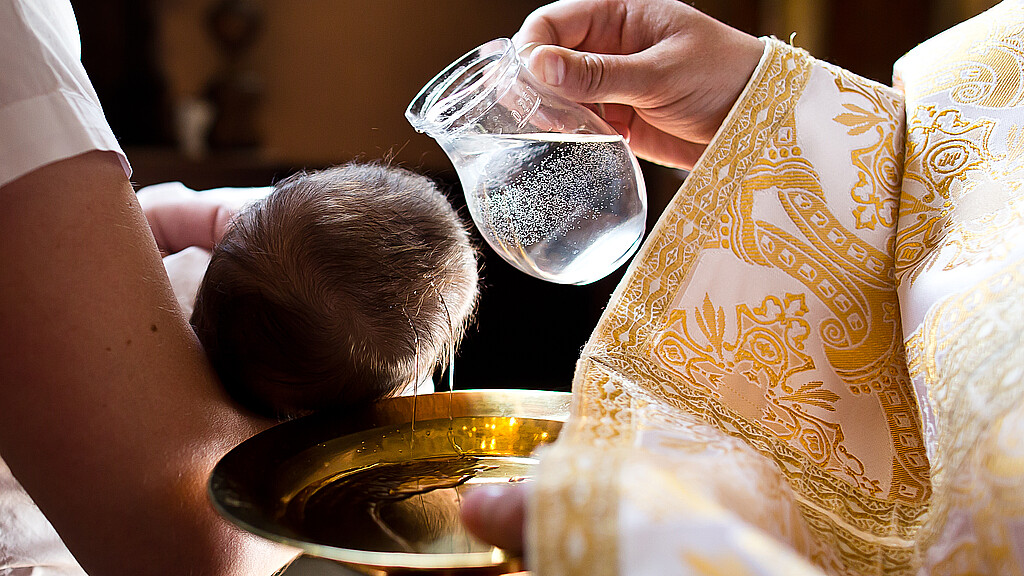Opinion & Reviews
Opinion: Church wins legal battle against gender identity baptismal certificate change
Plea to change baptismal certificates to match gender identity denied by Argentine Supreme Court, against the backdrop of a battle between the LGBT movement and the Catholic Church

May 11, 2023 12:46pm
Updated: May 11, 2023 12:46pm
Those who shout “separation of Church and State,” sometimes abuse the immortal words of Thomas Jefferson, pushing for change that would ultimately turn the State into a religion of their own.
When it comes to "gender identity" it is no exception. In fact, it is often the rule. Now that there are more countries allowing a person who was born one sex to legally change it to another, there is now a push to do the same on their baptism certificate.
Simply put, some say that if a man claims he is a woman on his I.D. or passport, he should have the right to change the name on their baptismal certificate as well.
However, there is resistance. In Argentina, the Catholic Church won over the trans movement, achieving a favorable ruling from The Supreme Court of Justice. They did not empower the plaintiff with the right to compel the Church to change information enshrined in the sacrament.
The plaintiff demanded that the Archbishopric of Salta annul his baptism and confirmation. Then he wanted to issue new certificates with his name changed to the opposite sex.
He now goes by the name of Alba Rueda, Special Representative of Argentina on Sexual Orientation and Gender Identity of the Ministry of Foreign Affairs, International Trade and Worship. He demands that said name appear on his baptismal and confirmation certificate.
But the Bishop of Salta said no. He argued that canon law is alien to "legal fiction."
Then Rueda appealed to the justice system and was denied. The Supreme Court determined that religious practice is a fact of a private nature, and therefore, the tribunal could not interfere.
What does the Pope say?
Pope Francis, also from Argentina, recently addressed the issue of how the church should address people who do not identify with their biological sex.
He starred in a type of town hall forum where he spoke to a group of young people about current issues.
There, one of the girls, Celia, who considers herself non-binary, asked the Pope about LGBT people and their place in the Church. The Holy Father replied that as a father God loves his children and it is not the Church's place to expel them.
His statements demonstrate that the Church is not against LGBT people. It just wants to preserve their baptismal name, the name which, according to the Catholic faith, God knows his children.
To change the name would be to ignore that son and how he was presented to him. In addition, the Holy Scriptures are key to how much God made us men and women, not as something interchangeable or subject to error.
But gender ideology aims to change that concept. It calls the original name of a trans person "dead name," as if they were reborn under a new identity. It is considered violence to call the person by their actual birth name. The gender ideology movement rejects those who continue to call people by their birth name.
But it is important to differentiate the person from the ideology and the individual from the collective. The movement does not speak for every person who has a same-sex attraction or who does not identify with their biological sex.
In some instances, the LGBT lobby does not seek acceptance but rather imposition. In fact, there are increasingly more dissident voices, such as Gays Against Groomers, who fight against the indoctrination of minors.
Gays Against Groomers was founded by a lesbian who strongly opposes campaigns that accuse women who are sexually attracted to others of “transfobia” if they choose to not be with a person with male genitalia, even if they declare themselves to be female.
People like Jamiee Michel highlight the need to recognize the sex of people, their biology, and not their perception, or ideology. Since the latter dilutes concepts such as heterosexuality, bisexuality, and homosexuality, these terms are governed by physical attraction, and are not intended to be abstract or subjective.
But in Argentina, there are legal tools to prevent the trans movement's radicalization. Given that the federal government gives the Catholic faith some constitutional preferences, it still has the power to protect the faith and guarantee freedom of worship. In this capacity, Argentina is setting a precedent other countries in the free world should aim to follow.







